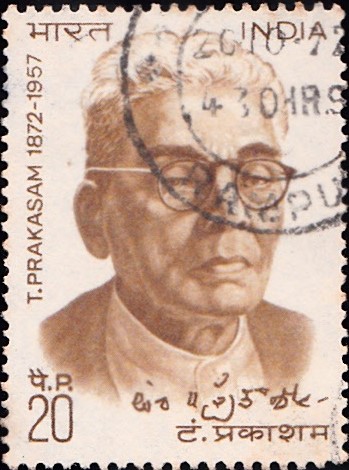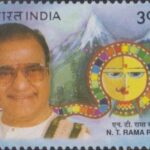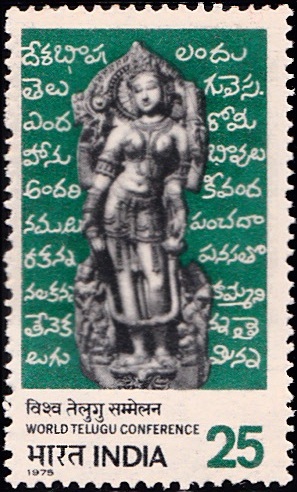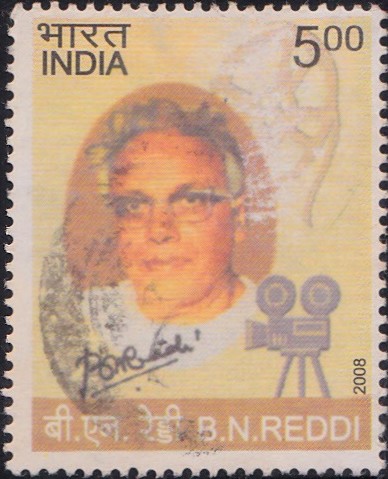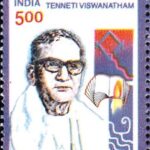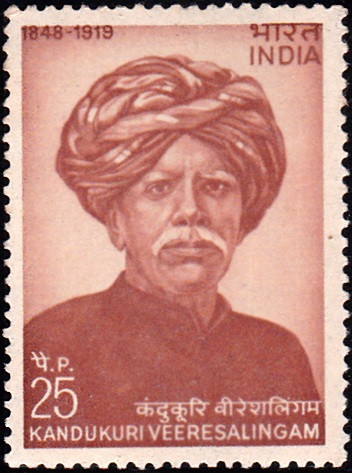
Kandukuri Veeresalingam
A commemorative postage stamp on Rao Bahadur Kandukuri Veeresalingam Pantulu, father of renaissance movement in Telugu [a part of ‘Personalities Stamps Series‘] :
Issued on Jul 15, 1974
Description of Design : The stamp is vertical and depicts the portrait of the personality.
Type : Stamp, Mint condition
Colour : Burnt Sienna
Denomination : 25 Paise
Overall size : 3.91 x 2.90 cms.
Printing size : 3.56 x 2.54 cms.
Perforation : 13 x 13
Watermark : Printed on unwatermarked Adhesive Stamp paper
Quantity printed : 2 Million
Number per issue sheet : 35
Printing process : Photogravure
Designed and printed at : India Security Press, Nashik Road
Name : Kandukuri Veeresalingam Pantulu
Born on Apr 16, 1848 at Rajamahendravaram (Rajahmundry), Andhra Pradesh, India
Died on May 27, 1919 at Madras, British India [now Chennai, Tamil Nadu]
About :
- Kadukuri Veeresalingam was a born crusader against social evils. As a social reformer, he stirred public conscience for the improvement of Women’s status, uplift of Harijans and the removal of various social taboos. A man of action and firm determination he heralded a social revolution in Andhra. He is to Andhra what Ram Mohan Roy is to India in a larger sense.
- Born on April 16, 1848, Veeeresalingam lost his father at a tender age and was brought up by his uncle. Even as a pupil in the primary school, he opposed meaningless customs and religious beliefs. Later in life he was a school teacher. He fought valiantly against orthodoxy and waged a long-drawn battle for the rights of women to education, marriage of widows and the abolition of child marriage. He campaigned against the caste system and encouraged inter-caste marriages. He waged a battle against untouchability. He took up the case of the poor and the downtrodden and fought corruption in administration. Veeresalngam was also a man of great erudition. He wrote playlets and essays in single Telugu, dealing with social evils. He stated Telugu journalists, and through their pages advocated various causes for social reform. He breathed his last on May 27, 1919.



